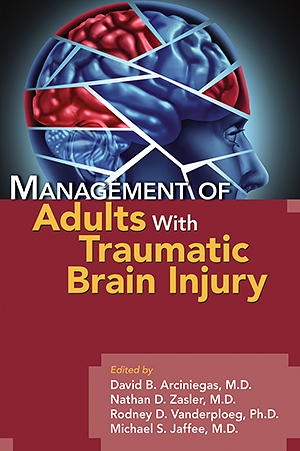Sections
Excerpt
Disorders of mood and affect are common consequences of traumatic brain injury (TBI). The pathogenesis of these disorders following TBI is complex and, in all likelihood, variable with respect to etiology. In some cases, especially in the early period following TBI, the development of these disorders may reflect the effects of neurotrauma on the several distributed neural networks that generate and regulate emotion (Jorge et al. 1993a). For some patients, particularly those in whom depressive disorders develop in the late postinjury period, psychological and social factors appear to be etiologically important (Jorge et al. 1993a; Whelan-Goodinson et al. 2010).
Access content
To read the fulltext, please use one of the options below to sign in or purchase access.- Personal login
- Institutional Login
- Sign in via OpenAthens
- Register for access
-
Please login/register if you wish to pair your device and check access availability.
Not a subscriber?
PsychiatryOnline subscription options offer access to the DSM-5 library, books, journals, CME, and patient resources. This all-in-one virtual library provides psychiatrists and mental health professionals with key resources for diagnosis, treatment, research, and professional development.
Need more help? PsychiatryOnline Customer Service may be reached by emailing [email protected] or by calling 800-368-5777 (in the U.S.) or 703-907-7322 (outside the U.S.).



